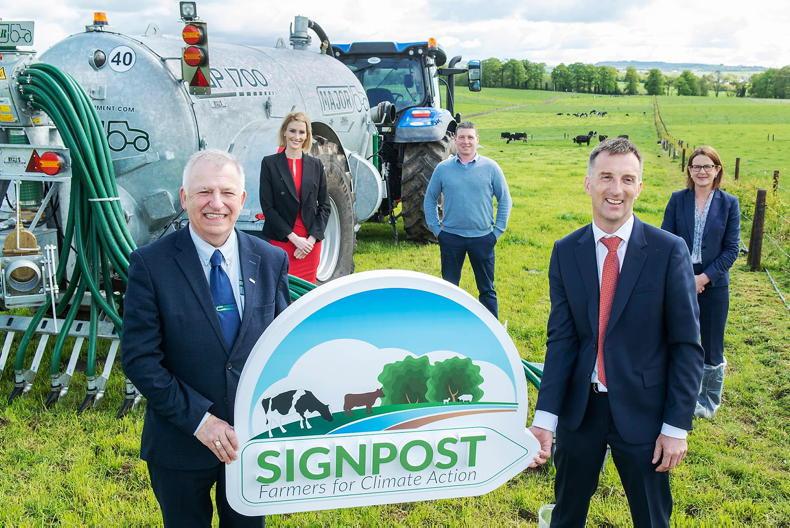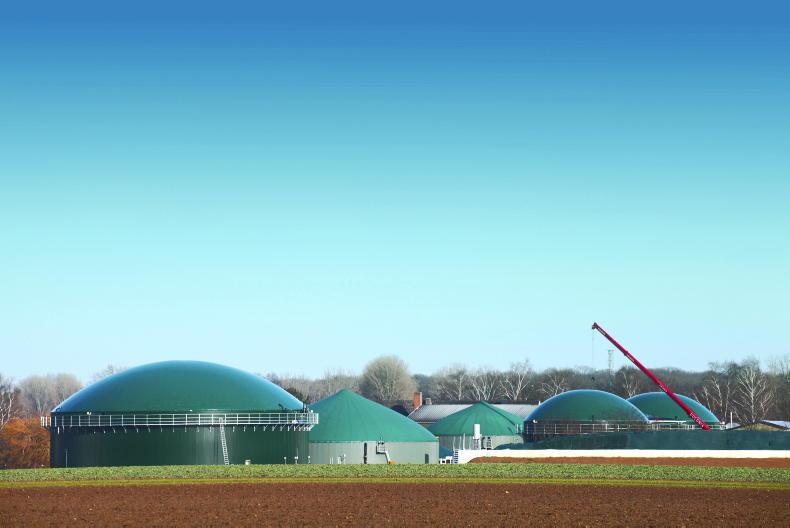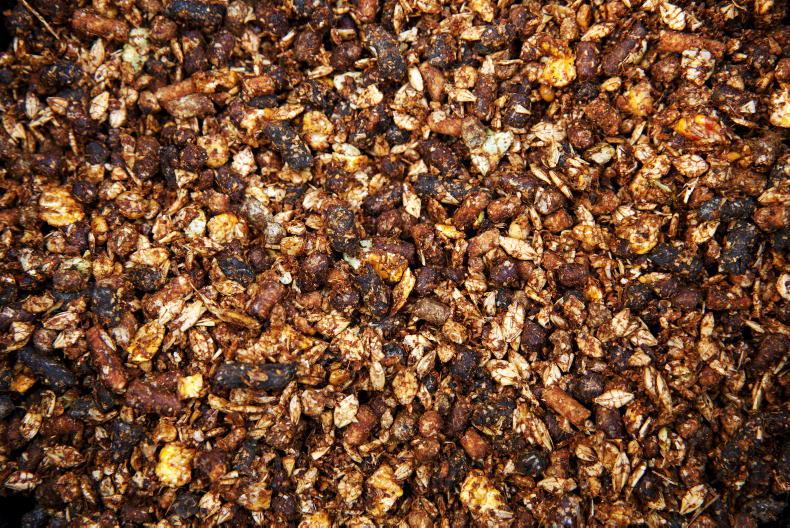The opinions expressed by Professor Gerry Boyle last week have been a hot topic since they were made. It’s no surprise, for when the director of the country’s agricultural research programme infers that farming may be facing impossible demands from the climate council’s sectoral targets. That is a stark warning.
He repeated that warning at Tuesday’s launch of the Signposts Programme, part of the concerted drive toward on-farm and industry-wide sustainability.
The core of Professor Boyle’s message was that farming will have to bear a significant share of the 51% reduction in emissions by 2030, because other sectors will only be able to bear some of the extra burden placed on them by allowing farming a lower sectoral target.
This task will be made much more difficult if biogenic methane and “removals” are not recognised in the climate action bill and/or the sectoral target’s small print.
What are removals?
Quite simply, removals are the opposite of emissions – being the removal of carbon or greenhouse gases from the atmosphere.
They are also referred to as “offsets”, “sequestration” or “carbon sinks”. Professor Boyle last week referred to 26,8m tonnes of CO2 equivalent removals that were in the climate action bill of June 2019.
It stated: “In recognition of the historic investment in forestry and the low mitigation potential in agriculture, Ireland has been provided flexibility to mobilise carbon credits to a limit of 2.68m tonnes CO2eq per annum over the 2021 to 2030 period” – a cumulative 26.8mt across the decade.
The absence of a similar reference in the current draft of Eamon Ryan’s climate action bill
is a cause for concern, and sure to be raised when the IFA meet him on Thursday.
If both it and biogenic methane – which effectively recognises the balancing effect of grassland carbon sinks when measured against the emissions of the livestock grazing them – are not considered, we are facing deep cuts to those livestock numbers.
The opinions expressed by Professor Gerry Boyle last week have been a hot topic since they were made. It’s no surprise, for when the director of the country’s agricultural research programme infers that farming may be facing impossible demands from the climate council’s sectoral targets. That is a stark warning.
He repeated that warning at Tuesday’s launch of the Signposts Programme, part of the concerted drive toward on-farm and industry-wide sustainability.
The core of Professor Boyle’s message was that farming will have to bear a significant share of the 51% reduction in emissions by 2030, because other sectors will only be able to bear some of the extra burden placed on them by allowing farming a lower sectoral target.
This task will be made much more difficult if biogenic methane and “removals” are not recognised in the climate action bill and/or the sectoral target’s small print.
What are removals?
Quite simply, removals are the opposite of emissions – being the removal of carbon or greenhouse gases from the atmosphere.
They are also referred to as “offsets”, “sequestration” or “carbon sinks”. Professor Boyle last week referred to 26,8m tonnes of CO2 equivalent removals that were in the climate action bill of June 2019.
It stated: “In recognition of the historic investment in forestry and the low mitigation potential in agriculture, Ireland has been provided flexibility to mobilise carbon credits to a limit of 2.68m tonnes CO2eq per annum over the 2021 to 2030 period” – a cumulative 26.8mt across the decade.
The absence of a similar reference in the current draft of Eamon Ryan’s climate action bill
is a cause for concern, and sure to be raised when the IFA meet him on Thursday.
If both it and biogenic methane – which effectively recognises the balancing effect of grassland carbon sinks when measured against the emissions of the livestock grazing them – are not considered, we are facing deep cuts to those livestock numbers.









SHARING OPTIONS